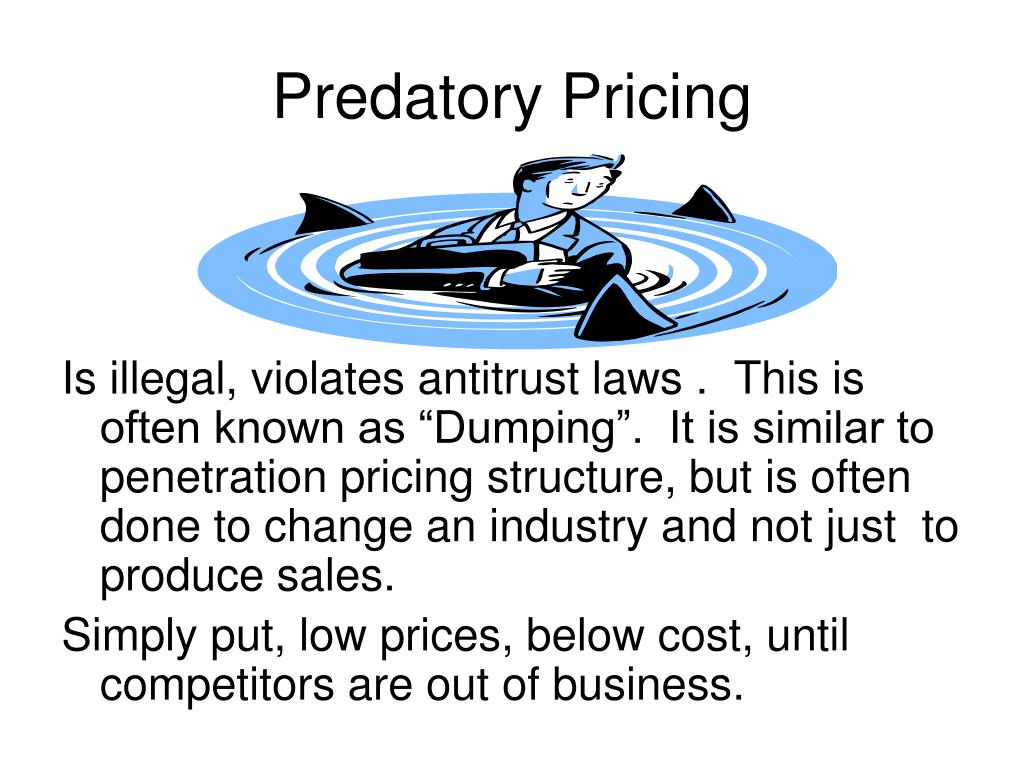


A company may be permitted to lower prices for a short duration or give discounts that result in losses. The FTC examines when predatory pricing violates the law. With that being said, predatory pricing is not always illegal. Consumers will be forced to pay higher prices for available goods based upon the lack of competition. If the monopoly power of a company increases, then it will be harmful to the public interest. The reason that predatory pricing may be illegal regards antitrust and consumer protection laws. As such, predatory pricing seeks to create a short-term competitive advantage for the predator company. As the predatory pricer creates market dominance and raises prices, new competitors stand at the ready to enter the market and compete. Of course, the cycle in predatory lending never ends. The smaller competitor lacks the resources to sustain losses and maintain in competition with the predator company. The predatory pricer enjoys the benefits of being a larger more established company. Predatory pricing can be a scheme to deal with the new companies who enter the market with the same or substitute product. Second, it is very difficult to demonstrate that a seller is pricing a good with the specific intent of thwarting competition and pushing competitors out of the market. Depending on the supply chain and purchasing history, it is difficult to show that a seller is pricing a good below cost. Much of the difficult concerns proving what is the cost of the good being sold to the seller. Predatory pricing is very difficult to prove. It is a tactic used by competitors in a price war. Predatory pricing is commonly known as undercutting. It is important to note that the key element is the purpose of pushing competitors out of the market. It creates a monopoly for the predatory pricer. When the competition breaks (going bankruptcy or other cases), the predator company increases the price and sells its product at a higher rate. Competitors have to lower their prices to keep up - thus bearing losses equal to or greater than the predatory pricer. It must be the case that the competitor lowers the price below the cost of the good, thus taking a loss on sales. Predatory pricing generally means one competitor lowering the prices of the product at the very beginning to attract customers. Predatory pricing means to sell the product at a very low price to harm competitors (companies that are selling competitive products).
Predatory pricing update#
Update Table of Contents Predatory Pricing Definition A Little More on What is Predatory Pricing Academic Research on Predatory Pricing Back to: LAW, RISK, & TRANSACTIONS What is Predatory Pricing?


 0 kommentar(er)
0 kommentar(er)
